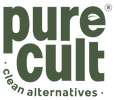Most floor cleaners contain Benzalkonium Chloride –It is known as human skin and eye irritant. Also suspected to be toxic to the respiratory, gastro and immune systems. Most laundry and dishwasher products contain formaldehyde –it is very dangerous and is linked to skin irritation, asthmatic attacks, headaches and even leukemia. Most household detergents contain Phthalates –it can damage the reproductive system, also pose a significant danger to the kidneys and lungs. In animal testing, they are harmful to developing testes.
Have you actually questioned what you use in your home every day – you could be harming yourself and your family!
Various household cleaning products speak to you with their marvelously curated marketing messages: They promise to make your floors sparkling clean, your windows streak-free and clear as crystal, your bathroom looks as good as new and your laundry as airy and fresh as it could possibly be. You either let yourself be swayed by their promises or maybe you reach for the first product you see, but have you ever considered the ingredients in the household products you choose? At PureCult, we strongly believe that you must check the ingredients lists carefully. Did you know that many of those ingredients have the potential to really harm your health – not only that, your children’s health and your pets’ too. Those same ingredients are also causing significant damage to the world that we all live in, ruining our planet for future generations. It’s time to take action – as we say at PureCult we all need to Own Up, Act & Change and we’re going to tell you why…
Household Cleaning Chemicals and the Environment
In terms of the environment, household cleaning chemicals not only linger in the air that we breathe; they also make their way back to natural resources. Consider this, when you use household cleaners in your bathrooms, in your dishwashers and washing machines, the toxic chemicals enter the water and travel back to rivers and lakes, contaminating them and adding to the destruction of wildlife. These same chemicals also affect plant growth and vegetation – this means they even affect the food that you eat.
Household Cleaning Chemicals and Humans
That’s just a snapshot of what these chemicals do to the environment, but what about the harm chemicals do to humans and animals? A huge amount of manmade chemicals that are found in household cleaning products can encourage allergies and pose a real danger to health. This is proven in numerous studies. Such reactions include skin irritation and breathing difficulties –especially asthma in children. In fact, in recent years, there has also been an increase in adult asthma too –due to the many chemicals that humans ingest. Using too many dangerous chemicals, again and again, might even result in psychological disorders, potential birth defects. And some chemicals are now known to be carcinogenic.
What are the Ingredients to Avoid?
Formaldehyde
This known carcinogenic can also cause breathing problems because it affects respiratory health. Formaldehyde causes skin irritation –banned from being used in so many different skincare products. Formaldehyde present in the following: cleaning products used for bathroom and kitchen, wood cleaner, furniture polish and floor cleaners.
Parabens
It must be avoided because there has been evidence of breast cancer sufferers with parabens in the cancerous tissue. Parabens disrupt women’s hormones and in young girls, it can bring on puberty early. Additionally, parabens could make men infertile
Ammonia
Ammonia can seriously damage vision, and can significantly impair lung function. Even mild exposure can pose problems because it encourages asthmatic reactions and other respiratory problems. If ingested, ammonia can burn your mouth and throat and aggravate your tummy. Ammonia is often present in household products such as dye and liquid soap.
SLS
SLS - Sodium Lauryl Sulphate or Sodium Laureth Sulphate. These are both known to irritate the skin and don’t do anything cleaning-wise except they give you a nice, foamy texture. You’ll find SLS in most bathroom and kitchen household cleaning products. Both can block up your pores this means that they could irritate skin with resulting problems such as eczema, dermatitis and other skin issues. There are some studies which state that too much use of products with SLS could even result in cancerous growth. So when buying household cleaning products, it’s best to find alternatives that are free from sulfates.
How to Be Safer?
Natural is obviously always best but it is difficult to find all-natural, pure household cleaning products. There are cleaning products that do promote as many natural products as possible. Our PureCult household products use a combination of plant-based ingredients and natural essential oils, all with high biodegradability. Not only do our products truly care for your home, they also care for our health and the environment. We are as pure as we possibly can be.
Natural ingredients are more expensive than the man made chemicals that are extensively produced –but with our household products the added expense evens itself out. That’s because we use refillable pouches and sturdy bottles that can be reused, promote recyclability and help to reduce landfill. We also use high dosage concentrate in all of our products which means your household cleaners go the extra mile, lasting longer than other brands.
You should always use non-toxic, pure products, for your health and for the planet. As mentioned at the beginning of this piece, it’s time that we all “Own Up, Act & Change”. If everyone switched to environmentally friendly household cleaning products, we could genuinely help to slow down the destruction of the rainforests, can reduce the amount of packaging ending up in the ocean that destroy marine life, can preserve the ice caps and keep temperatures bearable for longer –we can actually help to save the planet!



